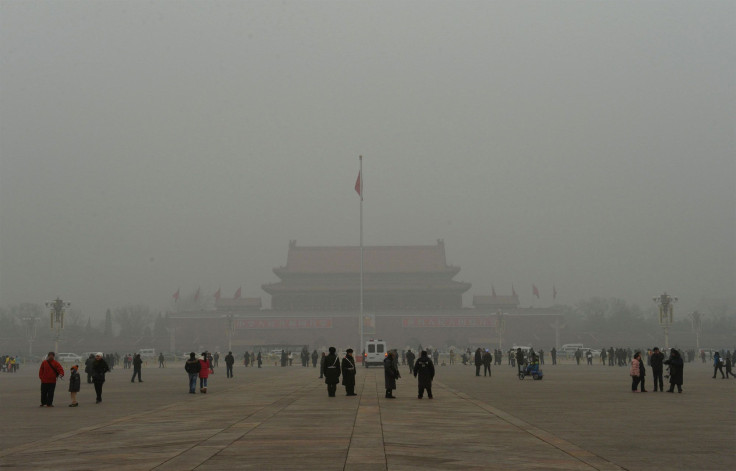China Restricts Car Sales Due To Air Pollution Troubles, But Expert Says It ‘Still Won’t Solve The Problem'

China has announced its plans to add more cities to the list of those trying to curb automobile emissions through the use of lottery systems and limited license plate issuances.
As the world's largest producer of automobiles, at 13 million cars sold in 2012, China's auto emissions make up the largest portion of the country's air pollution, at 22 percent in Beijing alone. Eight cities will join the current four cities, including Beijing and Shanghai, in the effort to curb pollution via lotteries and license plate auctions.
The eight include the port city Tianjin, near Beijing, the metropolis Chongqing in the southwest and industrial powerhouse Shenzhen, not far from Hong Kong.
The plan is slated to cut vehicle sales by 400,000, or two percent of total domestic sales, and have a "certain impact" on the country's economic growth, the China Daily newspaper quoted Shi Jianhua, the deputy secretary general of the government-backed China Association of Automobile Manufacturers, as saying.
Coal burning comprises a large part of China's overall pollution, as well. But the vehicle emission of PM2.5 — a secondary pollutant that forms in the air and can enter the lungs — has many citizens in a haze.
"When I was young, our geography teacher taught us how to recognize the galaxy and I could find it at night, but I guess kids nowadays can't do that anymore," Zhang Quan, 52, a former soldier said earlier this year.
Some experts are skeptical of the policies, as previous measures of similar stature largely failed to reduce pollution levels.
Has the damage already been done?
Zhao Jian, a transport expert at Beijing's Jiaotong University's School of Economics and Management, said extending restriction-on-ownership policies to other cities was unlikely to have much effect on pollution because there were already too many cars on the roads, the Associated Press reports.
"The restrictions on car ownership in Beijing failed to achieve what the government wanted to see because the restrictions only slowed the growth in the number of cars," Zhao said. "They didn't reduce the numbers of cars."
The gross abundance of pollution in China has its roots in numerous factors, such as low emission standards, poor public transportation systems, and the slow development of energy-saving and clean automobile technologies, the Asian Development Bank said in its 2012 environmental analysis of China.
In 2008, 3.13 million cars blanketed the streets of Beijing. That number has since risen to 5.18 million. Since the beginning of 2012, prospective buyers have had to enter their names into a monthly lottery system, which picks 20,000 winners for new license plates.
The number of people in the drawing swelled to almost 1.53 million by last month, reflecting the growing dependence on cars in China despite increasingly more informed citizens pushing to reduce overall pollution.
Still, Zhao remains skeptical, saying irreparable damage has already been done with the sheer number of cars on the road, especially given pollution's rise to the fourth leading cause of death in the country.
"Even with proper enforcement, the policy still won't solve the air pollution problem," he said. "Neither will similar measures in other cities."



























